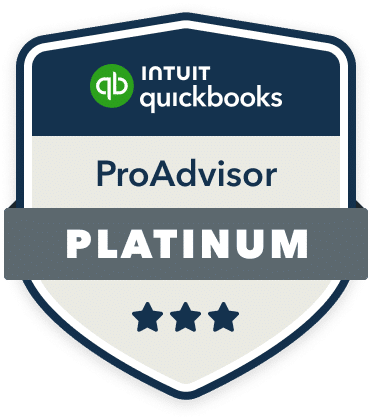If you’re reading this, it’s likely that you’re contemplating starting a business in Ohio, or you have one already.
We’re also going to assume that you’re familiar with the different types of business entities, including sole proprietorships, partnerships, LLCs, and corporations.
However, the S-Corporation (S-Corp) is a type of business structure that is frequently misunderstood.
Contrary to popular belief, an S-Corp is not a legal entity, but rather a tax designation that was established by Congress in 1958 to provide smaller businesses with similar tax benefits as corporations, but without the issue of double taxation.
And while the tax benefits of an S-Corp can be substantial, the process of forming one can be complicated. There are also several misconceptions about S-Corps that could damage your business if not addressed properly.
But don’t worry.
In today’s blog, we’re going to break down the process of starting an S-Corp in Ohio, including dispelling common myths about S-Corps.
Whether you’re running a solo operation, part of a partnership, a member of an LLC, or a shareholder in a C Corporation, this blog can help guide you through the process of forming an S-Corp and determining whether it’s the right choice for your business.
Let’s dive in.
What is an S-Corp?
As a reminder, an S-Corp is not a type of business entity per se, but rather a tax designation that can be elected by certain types of businesses.
Note: Forming your business as an S-Corporation is a tax decision. We call it “electing to be taxed as an S-Corporation.”
In fact, LLCs, partnerships, and corporations can all be taxed as an S-Corp, as long as they meet certain criteria and file forms with the Internal Revenue Service (IRS).
The S-Corp is an attractive and popular tax election as businesses can enjoy the limited liability that comes with a corporation but act as a pass-through entity for tax purposes – meaning you avoid the double tax!
Let’s quickly look over how taxes work for corporations so you can understand just how beneficial an S-Corp is.
C Corporation Tax
When you form a corporation, you’ll be taxed under C Corporation status by default. This means that any profits your corporation made will be taxed before being paid out in dividends to the respective shareholders.
But that’s not all. Once the shareholders (you) receive their income, they’ll have to pay additional personal tax – you’re basically paying tax twice.
With S-Corp status, the corporation you form can bypass C-Corp taxes so that the only taxes paid are those made on personal income, similar to how a sole proprietorship is taxed.
What Are The Pros & Cons of Starting an S-Corp in Ohio?
An S-Corporation is a popular option for small businesses that are looking to cut down on taxes, but it’s not a one-size-fits-all solution. There are various factors to take into account before making the decision to elect S-Corp status.
It’s essential to weigh the pros and cons of forming an S-Corporation in Ohio. So, let’s explore some things that you should consider before making the leap.
Pros of starting an S-Corporation in Ohio
- Tax savings: You can save a lot of money on taxes because you don’t have to pay self-employment taxes (roughly 15% tax) on the portion of your share of profits that is not considered salary. (Note: we recommend working with an experienced accountant to help you determine what a reasonable salary for your role is.) You can also possibly access better health insurance options as a corporation than as an individual.
- Avoid double taxation: Unlike C Corporations, S-Corps are flow-through entities and do not have to pay double taxation. Income distributions are only taxed once, on your personal tax return.
- Liability protection: S-Corps offer liability protection, which means your personal property is generally protected from lawsuits against your business.
Cons of starting an S-Corporation in Ohio
- Reasonable salary: As the owner of an S-Corp, you are considered an employee of your own business and must determine a reasonable salary for yourself. This salary is subject to payroll taxes, and you may need to explain to the IRS why your salary is reasonable. We recommend working with an experienced accountant to help you determine what a reasonable salary would be.
- Payroll: Even if you don’t have any employees, as an S-Corp owner, you are required to file payroll, pay payroll taxes, and file quarterly payroll reports. This can be time-consuming, and you may need to outsource your payroll.
- Formality: S-Corps are formal business entities and require articles of incorporation, shareholder meetings with minutes, corporate officers, regularly required business form filings with the government, and filing fees.
- Taxation: You are taxed on your share of the S-Corporation’s income, even if you leave the income inside the company. Taking large distributions to pay income taxes could also cause you to break loan agreements with banks.
- Shareholder restrictions: S-Corps can only have up to 100 shareholders, who must all be US citizens or resident aliens. They can also only have one class of stock.
What are the Rules for S-Corp in Ohio?
Businesses must follow a set of rules or criteria before being able to register for S-Corp status in Ohio, which are as follows:
- It must be a domestic corporation or an LLC that has elected to be taxed as a corporation
- It must have only one class of stock
- It must have no more than 100 shareholders that must either be individuals, estates, trusts, or certain tax-exempt organizations
- Its shareholders must be U.S. citizens or residents
- It must not be an ineligible corporation, such as an insurance company, a bank, or a foreign corporation
Once your business meets the above requirements, you’ll be able to send the application forms to the IRS to elect S-Corp status. The election is generally valid until it is revoked by the shareholders or terminated by the IRS, and it must be made by March 15 of the year for which it is effective.

When Should You NOT Form an S-Corp?
Before you jump into incorporating your business as an S-Corporation, there are certain situations and reasons that could make it a dealbreaker.
Here are some factors to consider:
- Revenue: If your business is still a small operation, it’s possible that after considering corporate origination fees, government filing fees, and tax preparation fees, the tax savings may not be significant. It’s generally recommended to make at least $85,000 in revenue per year before considering an S-Corp election.
- Foreign Shareholders: S-Corps are only allowed to have U.S. citizens or resident alien shareholders, so if foreign investment is important to you, an S-Corp may not be the best choice.
- Complexity: While S-Corps offer tax benefits, they come with specific rules that must be followed, including shareholder meetings, minutes, tax forms, payroll, and government filings. If you feel that this level of formality is too much for you, consider remaining a sole proprietor.
- Limited Entity Type Change: If you become an S-Corp, you’re stuck with that choice for five years. If you were an LLC or a C Corp before becoming an S-Corp, you can switch back after the five-year period. So, an S-Corp that used to be an LLC can go back to being an LLC, and a former C Corp can switch back to being a C Corp. If you’re still unsure about which entity type to choose, you can remain a sole proprietorship or partnership indefinitely, but remember that you won’t have liability protection until you change to a corporation or LLC.
- Passive Income: If you own rental real estate and receive passive income, you don’t have to pay payroll taxes on it. However, if you become an S-Corp, you’ll be required to pay yourself a salary, which could convert a portion of your passive income into income that’s subject to payroll taxes, potentially resulting in a loss.
How to Start an S-Corp in Ohio
Before making the decision to register your business for S-Corp status, it’s crucial to seek guidance from a qualified accountant or business advisor.
Electing your business to be taxed as an S-Corp can have both short-term and long-term impacts on your finances, including your tax and hiring strategies, and overall profitability.
Once you’ve made the decision to proceed with your business advisor, the process of starting an S-Corp in Ohio involves two main steps: forming an LLC or corporation with the state and then electing S-Corp status with the IRS.
Here’s a quick overview of how to complete these steps:
- Choose a name for your LLC that is unique and complies with Ohio’s naming rules, and pay the applicable filing fee. We recommend checking with an attorney for possible trademark or other naming conflicts before completing this step.
- Choose a registered agent with a physical address in Ohio for your LLC who will receive legal notices and documents on behalf of your business.
- File the Articles of Organization with the Ohio Secretary of State online, or go old school and mail them along with a filing fee of $99.
- File Form 2553 with the IRS within two months and 15 days of the start of your tax year. This form tells the IRS that you want your business to be taxed as an S-Corp instead of a C-Corp or an LLC. You must also file a notice of the S election with the Ohio Tax Commissioner between January 1 and March 31 every year.
- Run your business like an S-Corp. That means keeping accurate records of your income and expenses, paying yourself a reasonable salary as an employee of your own business, filing annual reports with the state and federal governments, and distributing profits and losses to your shareholders according to their share ownership. We strongly recommend hiring a professional to assist you with this process! Unwinding the mess that you can potentially get into by doing it yourself is not worth it in the long run.
Next Steps: Get The Advice of an Experienced Accountant
Despite our rather quick run-down of what it takes to form an S-Corp in Ohio, the process itself can be rather complex, involving both state and federal laws and regulations.
And, though we don’t doubt your ability to do it alone, we do advise that you consult with an experienced accountant, such as any of us here at ZenStrategies, to help streamline the process.
We’ll work with you to determine if S-Corp status is right for your business, and what a reasonable salary might be, prepare and file all necessary forms and documents, handle payroll taxes and reporting requirements, and advise you on tax planning strategies.
After all, an S-Corp is like a car – it’s the ongoing “maintenance” that you loathe, which we can help with.
You can book a complimentary call by filling in a few questions here.
Until next time!




